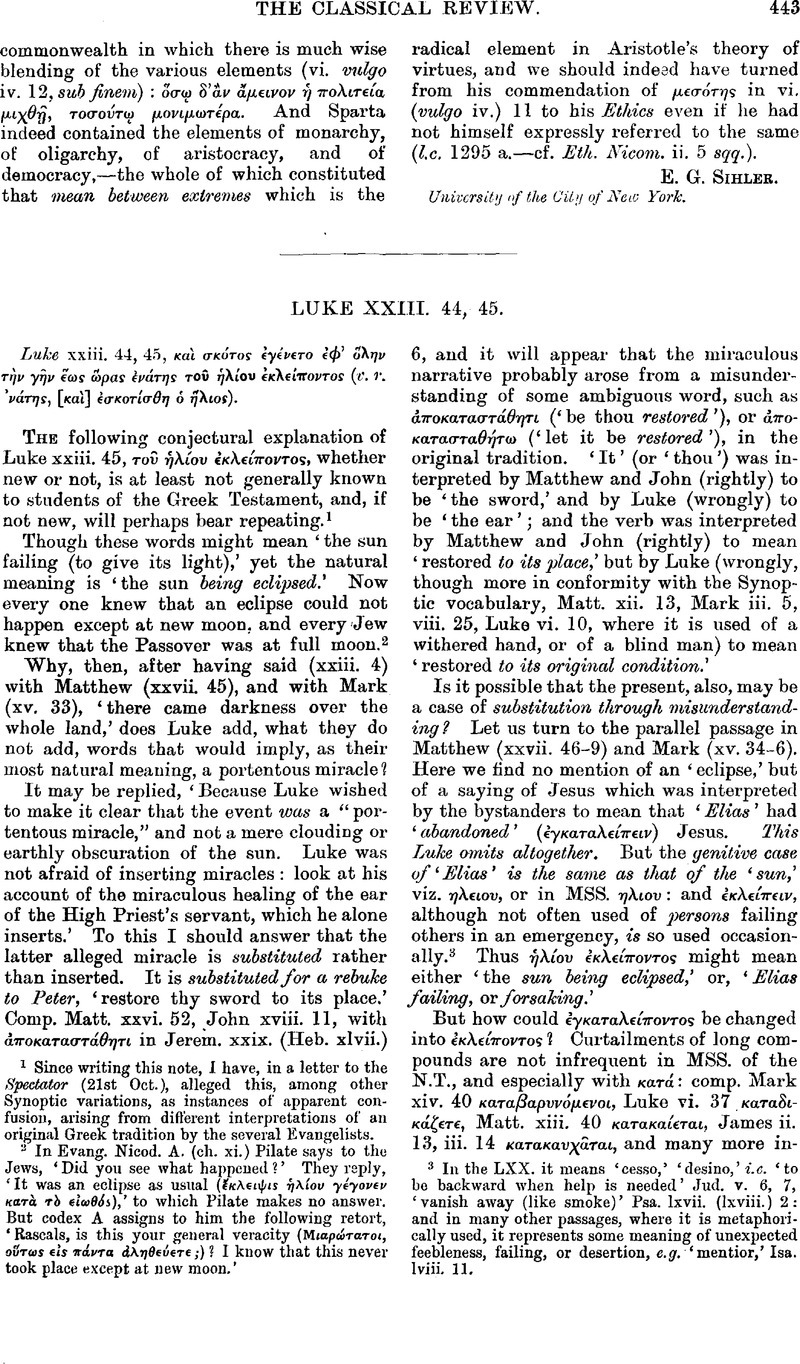No CrossRef data available.
Article contents
Abstract

- Type
- Review Article
- Information
- Copyright
- Copyright © The Classical Association 1893
References
page 443 note 1 Since writing this note, I have, in a letter to the Spectator (21st Oct.), alleged this, among other Synoptic variations, as instances of apparent confusion, arising from different interpretations of an original Greek tradition by the several Evangelists.
page 443 note 2 In Evang. Nicod. A. (ch. xi.) Pilate says to the Jews, ‘ Did you see what happened ? ’ They reply, ‘ It was an eclipse as usual (![]() ),’ to which Pilate makes no answer. But codex A assigns to him the following retort, ‘Rascals, is this your general veracity (
),’ to which Pilate makes no answer. But codex A assigns to him the following retort, ‘Rascals, is this your general veracity (![]() )? I know that this never took place except at new moon.’
)? I know that this never took place except at new moon.’
page 443 note 3 In the LXX. it means ‘cesso,’ ‘desino,’ i.e. ‘to be backward when help is needed’ Jud. v. 6, 7, ‘vanish away (like smoke)’ Psa. lxvii. (lxviii.) 2: and in many other passages, where it is metaphorically used, it represents some meaning of unexpected feebleness, failing, or desertion, e.g. ‘mentior,’ Isa. Iviii. 11.
page 444 note 1 Clem. Alex. Fragm. § 57 (1003, Pott.) sees a connection between θες and ἤλιος, and mentions it in connection with Matt, and Mark's tradition of ![]() . Commenting on Ps. xviii. 4,
. Commenting on Ps. xviii. 4, ![]() .
.


